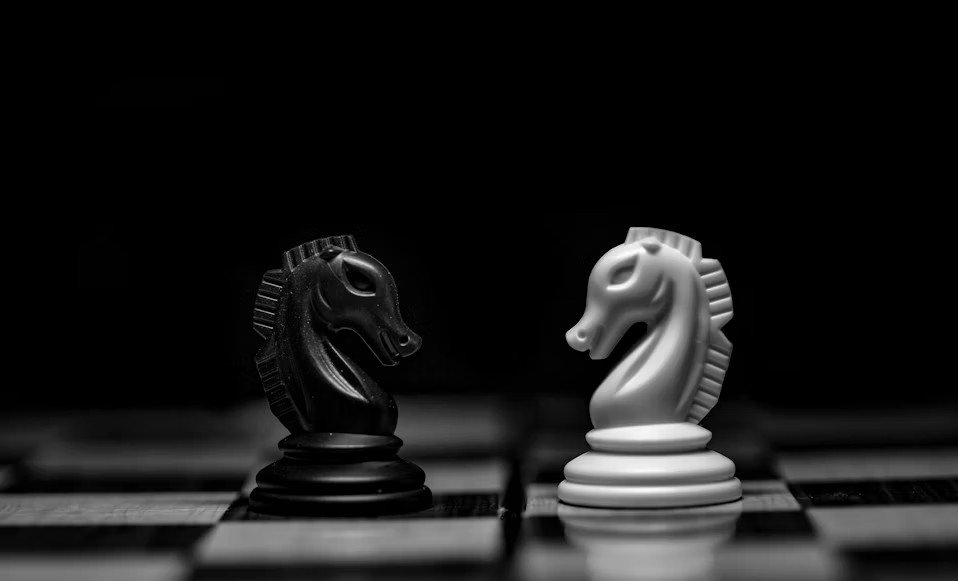Flat 30% OFF Use Code FLAT30
Flat 15% OFF Use Code STORE15
Flat 40% OFF Use Code FLAT40
COD Available
Flat 30% OFF Use Code FLAT30
Flat 15% OFF Use Code STORE15
Flat 40% OFF Use Code FLAT40
COD Available
The FIDE Laws of Chess are the official rules for over-the-board play in tournaments. These regulations cover everything from basic gameplay mechanics to the conduct of players and arbiters.
Understanding these rules is crucial for anyone participating in a rated tournament, as even small infractions can lead to penalties. The rules ensure fair play and a standardized environment for competitive chess.
Equipment Standards ♟️
FIDE sets specific standards for the equipment used in official tournaments to ensure consistency. The chess set must be of the “Staunton” style, which is the universally recognized design. The chess pieces must be made of materials like wood or plastic and have specific dimensions. For example, the King’s height should be around 9.5 cm, with other pieces scaled proportionally.
The squares on the chess set should be between 5 and 6 cm, with the chessboard itself being rigid and non-reflective. For time controls, FIDE-compliant electronic clocks are required in top-level events, while mechanical clocks are also permitted in other rated tournaments. These strict equipment standards are in place to prevent any player from gaining an unfair advantage through non-standard gear.
Core Gameplay Rules
The FIDE rules govern the fundamental mechanics of the game. The “touch-move” rule is one of the most well-known and strictly enforced. If a player intentionally touches one of their own chess pieces when it’s their turn, they must move that piece if there’s a legal move available. Touching an opponent’s piece commits you to capturing it, provided a legal capture is available.

If a player wishes to adjust a piece on its square, they must first say “j’adoube” (French for “I adjust”) to their opponent. All moves, including capturing and castling, must be made using a single hand.
Recording moves is also a mandatory part of most FIDE-rated tournaments. Players must write down their moves and their opponent’s moves on a scoresheet using algebraic notation. This scoresheet serves as an official record of the game and is often used to resolve disputes. Players can stop recording moves only when they have less than five minutes left on their clock and no time increment.
Time Controls and Clocks ⏳
Time management is a critical skill in competitive chess, and FIDE regulations define how time is handled. A chess clock has two separate timers, one for each player, and only one runs at a time. The player with the white chess pieces starts the game and their clock begins ticking after they make their first move. A player’s turn ends, and their opponent’s clock starts, the moment they press their clock button with the same hand they used to make the move.
Time controls vary depending on the tournament format (e.g., standard, rapid, or blitz). In a standard tournament, players must complete a specified number of moves within a set time, often with an increment added after each move. If a player runs out of time before completing the required moves, they lose the game, unless their opponent has insufficient material to checkmate.
Fair Play and Conduct
FIDE places great emphasis on fair play and proper conduct. Electronic devices, including mobile phones and smartwatches, are strictly prohibited in the playing area. If a player’s phone rings or they are found to have a device on them, they can automatically forfeit the game. Players are expected to conduct themselves with respect toward their opponents and arbiters, avoiding any form of distraction or unsportsmanlike behavior.
The arbiter is the official in charge of the tournament, and their decisions on rules and regulations are binding. These rules, while seeming complex, are designed to create a level playing field where skill and strategy alone determine the outcome. For aspiring tournament players, understanding the intricacies of these rules is as important as mastering the game itself.
From the quality of the chess pieces on the board to the proper use of a scoresheet, every detail contributes to the integrity of the game. As a fun aside, some players even have a chess keychain to show their passion for the game, a small token of their dedication to the rules and spirit of chess.